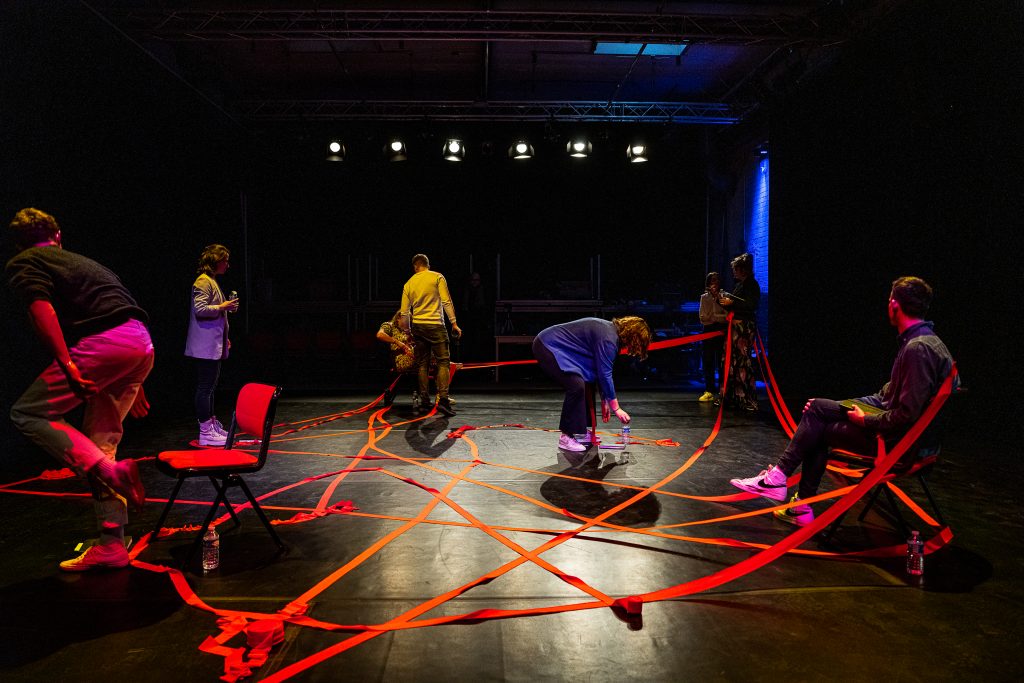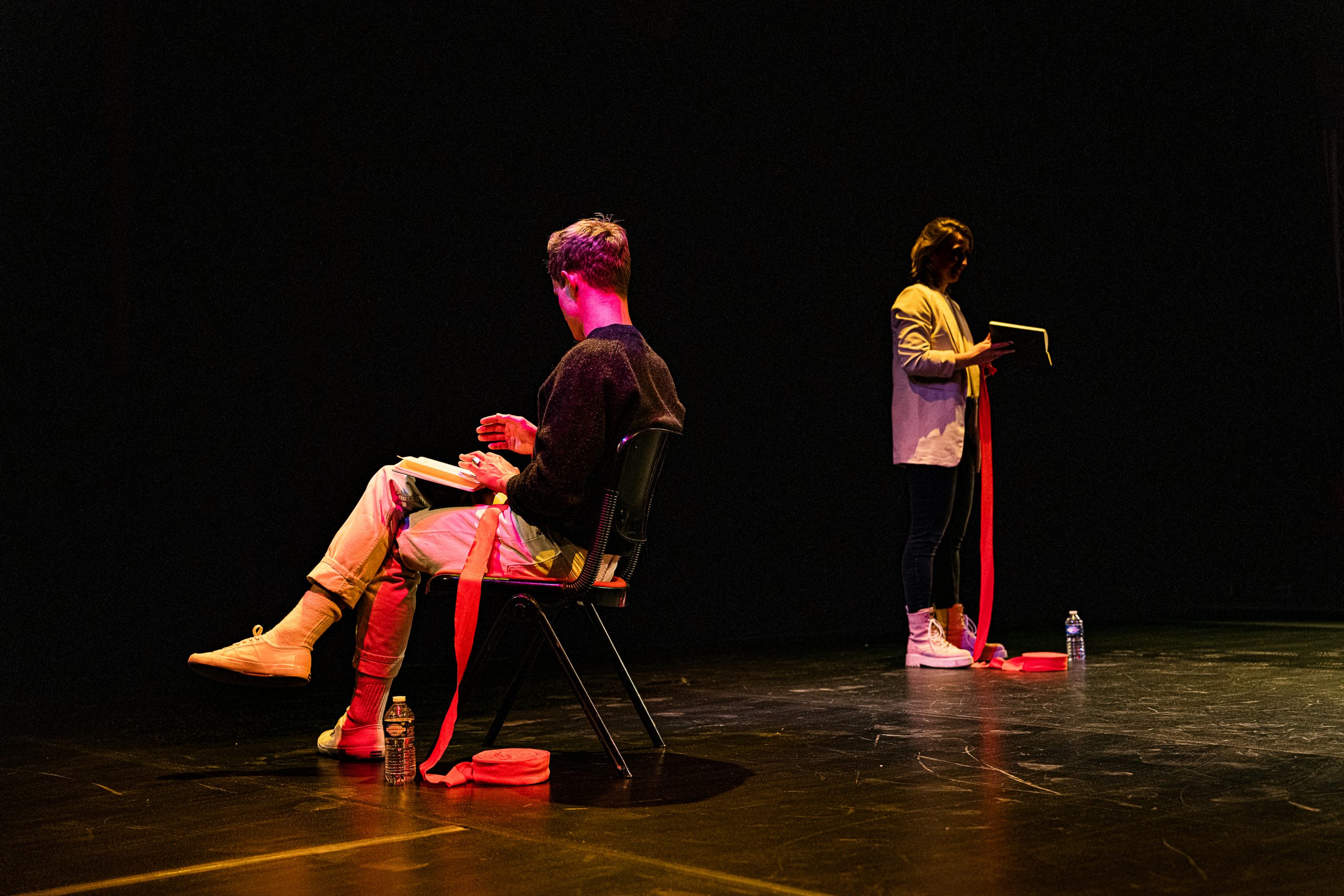Staging Cancer: Participatory arts-based research into narrative meaning-making and identity formation by adolescents and young adults (AYAs) after cancer treatment
‘Staging Cancer’ aims to investigate whether – and if so, how – participatory arts-based research can support cancer patients in the relational and socio-cultural process of narrative meaning-making during and beyond a diagnosis of (incurable) cancer.
Project team
• Project coordinator: dr. Niels van Poecke (Amsterdam UMC)
• Principal Investigator: prof.dr. Hanneke van Laarhoven (Amsterdam UMC)
• PhD Candidate: Emily Evans, MA
• Lead artist: Gerty Vande Perre
• Other team members: dr. Jacqueline Tromp (Amsterdam UMC); drs. Gea Westerhof (Amsterdam UMC); dr. Michael Scherer-Rath (Radboud Universiteit Nijmegen); prof.dr. Mirjam Spangers (Amsterdam UMC); Boukje Schweigman (theatre maker); Connor Schumacher (dance artist); Lisa Lucassen (theater maker, SheShePop)

The diagnosis of (incurable) cancer may evoke experiences of contingency in patients: events that are perceived as constituting the ‘randomness’ of life – i.e., that could have been otherwise. Such experiences may evolve into identity challenges, shifts, or even into a crisis of identity at large, through their evocation of loss and crisis of meaning in life, threatening patients’ quality of life. It has been argued that cancer patients, after diagnosis, are hence necessitated to re-make meaning of their life with cancer by means of a reconfiguration of their life-story – a concept referred to as ‘narrative meaning making’. This process, however, is not 'merely' intra-psychological. Rather, it as an ongoing relational and socio-cultural practice. That is, it is not undertaken in isolation, but is afforded and/or constrained in the interaction with significant others, societal discourses, and meaning making resources including the arts and (popular) culture; and by individual ‘dispositions’ premised upon one’s position in society and socialization and enculturation histories.
Participatory art refers to artworks centred on co-creation (in this case between researchers, patients, caregivers, and artists), and which artistically values the act of collaboration as much as its ‘output’. It is directed towards, and argued to have, a supportive role in people’s lives by, for example, empowering individuals who are in precarious positions in processes of productive self-transcendence, (re)constructing identities, and pursuing social change. Very little research has been conducted, however, on the question of whether, and if so how, socially engaged practice impacts upon individuals’ lives, nor on its practice in (and in relation to) oncological supportive care. Here, we aim to undertake such a task, exploratively connecting and questioning the ‘whats’ and ‘hows’ of socially engaged practice within and towards such a context, and our theoretical model. As such, our project aims to understand whether – and if so, how – socially engaged practice can afford and/or constrain the processes of narrative meaning making by cancer patients.
To do so, we take a transdisciplinary approach to our investigation, co-developing and co-researching an innovative socially engaged, participatory artwork titled: ‘Staging Cancer’. We co-create this project in collaboration with artists, researchers, and three different patient groups: adolescents and young adults in the first phases after cancer treatment; patients with ‘prolonged incurable cancer’; and palliative patients with lower socio-economic status.


